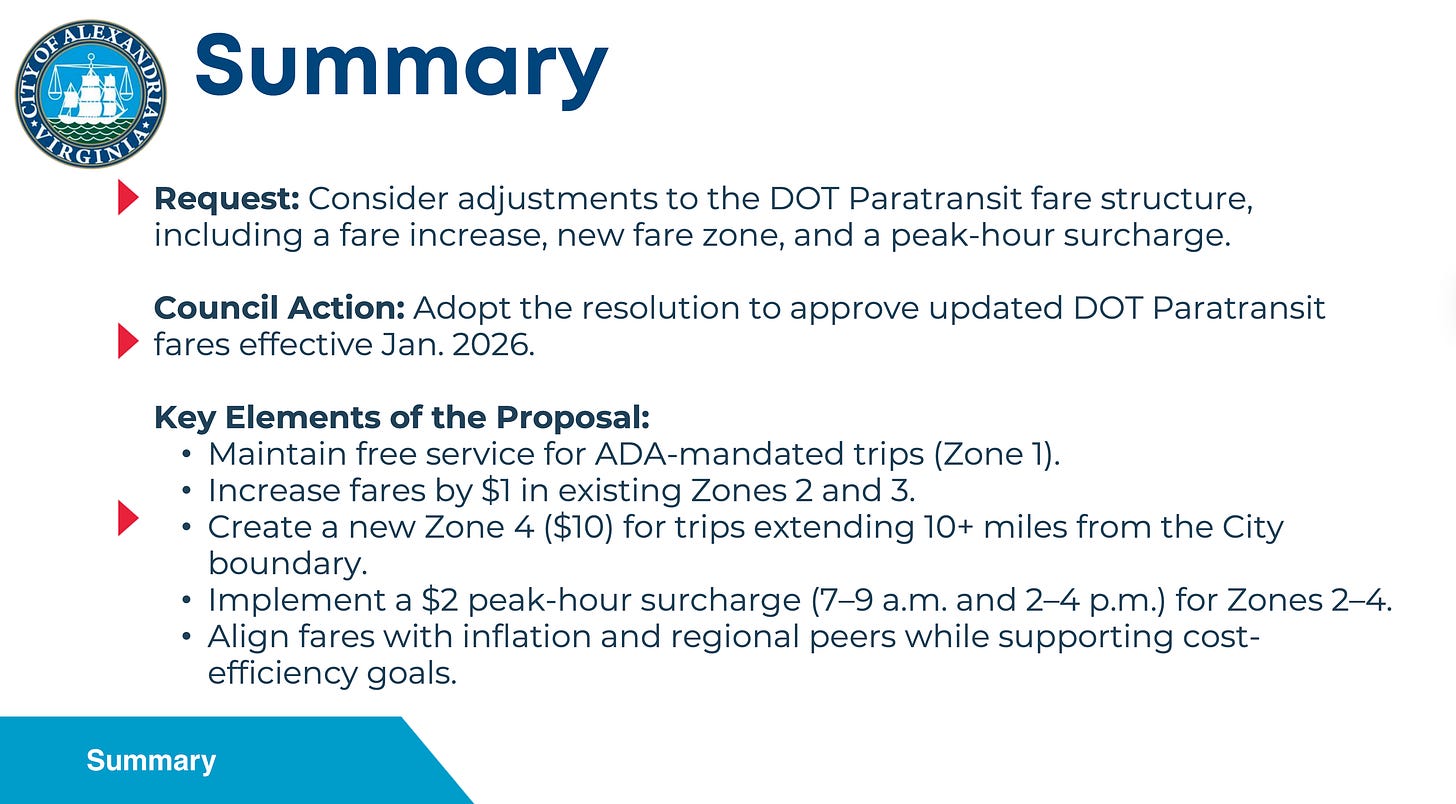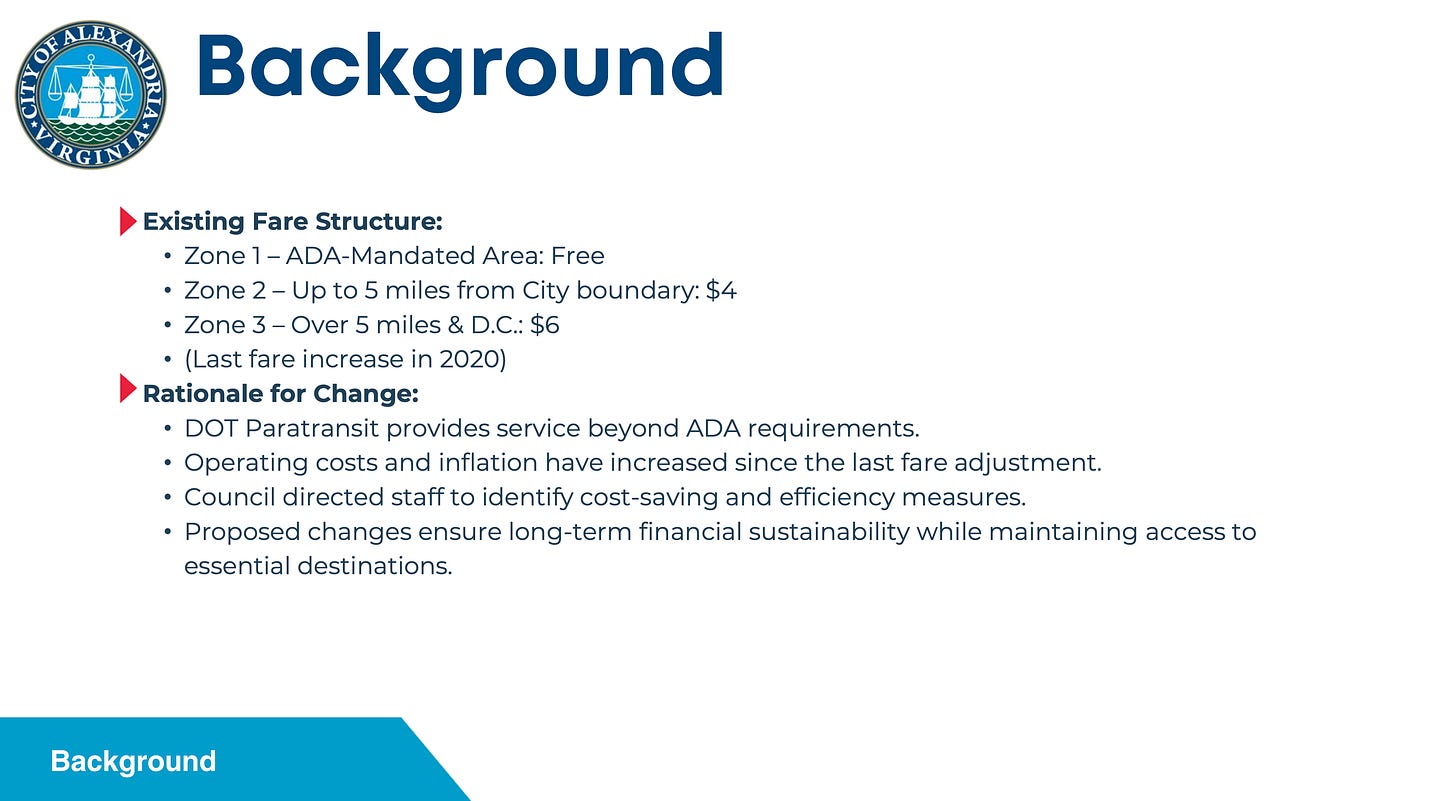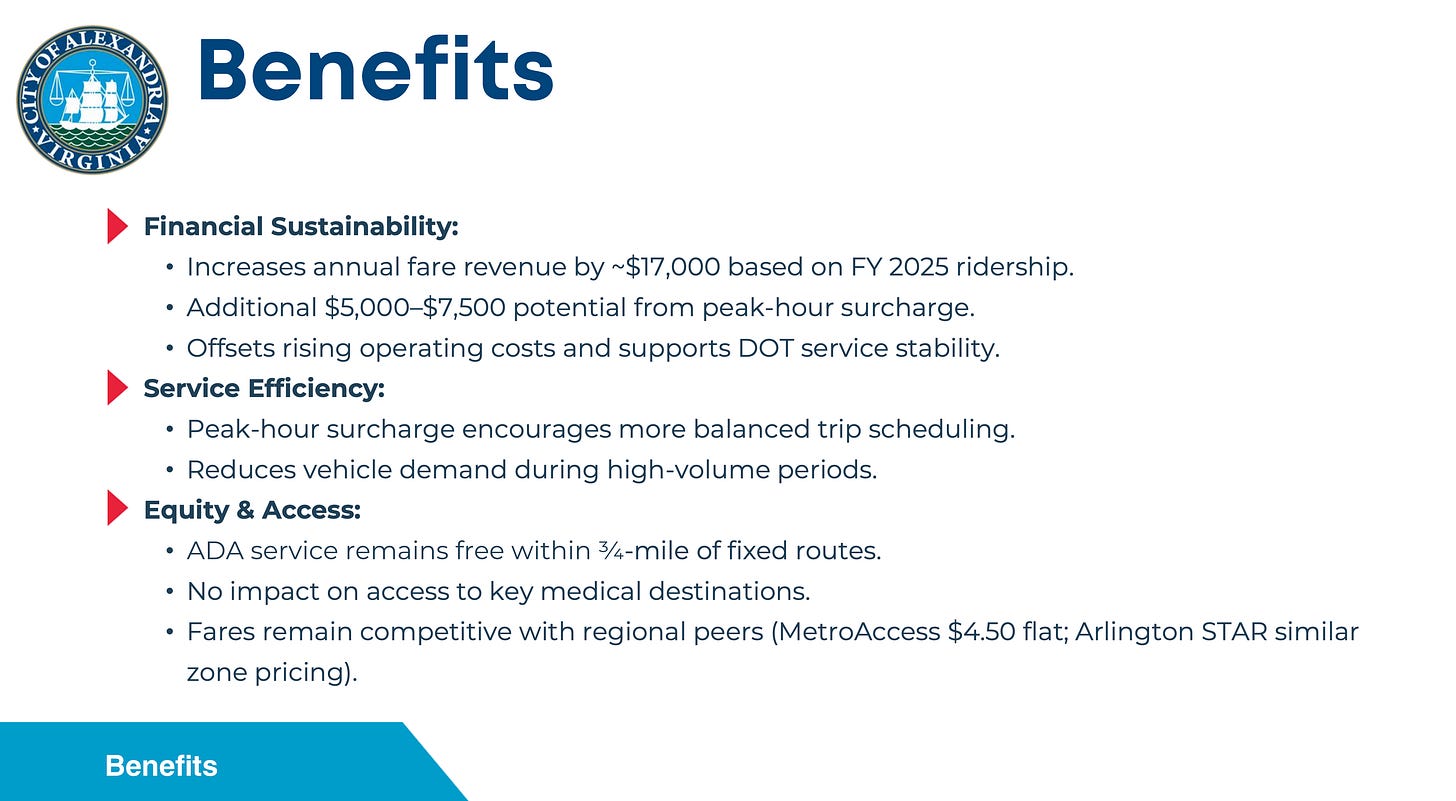Alexandria City Council approves paratransit fare increases, vehicle leasing plan
New Zone 4 and peak-hour surcharges will take effect in January as city aims to offset rising costs while maintaining service for residents with disabilities
Alexandria City Council unanimously approved fare increases and a vehicle leasing arrangement for the city’s DOT Paratransit program on Wednesday night, implementing key elements of a cost-savings package presented at the previous council meeting.
The council approved two separate resolutions updating the fare structure and authorizing the city to lease vehicles to the paratransit service contractor, WeDriveU. The changes are set to take effect in January 2026.
DOT Paratransit is a specialized transportation service for residents and visitors who cannot use fixed-route public transit due to a disability. To use the service, residents must submit an application to the paratransit coordinator. Upon approval, they can make reservations for specific trips provided by WeDriveU and its subcontractor UZURV.

Fare restructuring
Under the approved changes, Zone 2 fares will increase from $4 to $5, and Zone 3 fares will increase from $6 to $7. The city will also create a new Zone 4 with $10 fares for trips extending 10 miles or more from the city boundary.
The federally mandated fare-free zone within three-quarters of a mile of fixed-route transit will remain free, as required by federal law that limits paratransit fares to no more than twice what fixed-route transit charges. Since DASH service is currently free, the ADA-mandated paratransit service must also be free in that zone.
The city has provided service beyond minimum ADA requirements for decades, offering broader geographic coverage, including service to Washington, D.C., which was added in 2020. The last fare increase also occurred in 2020, when fares were raised by $1 across zones 2 and 3.

Peak-hour surcharges
The council also approved a $2 surcharge for trips during peak hours from 7 a.m. to 9 a.m. and 2 p.m. to 4 p.m. on weekdays. The surcharge will apply to all paid zones.
According to city documents, the fare changes are expected to increase annual fare revenue by approximately $17,000 based on fiscal year 2025 ridership, with an additional $5,000 to $7,500 potential from the peak-hour surcharge.
City staff said the peak-hour surcharge encourages more balanced trip scheduling and reduces vehicle demand during high-volume periods, while the fare increases help offset rising operating costs and support program stability.

Vehicle leasing arrangement
In a separate action, the council authorized the city manager to enter into a vehicle lease agreement with WeDriveU for up to five years.
Under the current model, WeDriveU operates the service using vendor-owned vehicles, which contributes to higher operational costs as the vendor incorporates vehicle financing, depreciation, and overhead into the service rate, according to city documents.
The city plans to purchase three electric Ford Transit vans with side-entry wheelchair lifts and lease them to the contractor. The arrangement is expected to save $2,700 to $3,000 per month per vehicle, with the city recouping vehicle costs within four years through reduced vendor payments.
Common paratransit rider complaints have focused on vehicle age, ride quality and cleanliness, according to city documents. The leasing arrangement would give the city more control over vehicle quality and support the transition to an electric fleet.
Under the agreement, the city would maintain the vehicles while the vendor would be responsible for insurance, charging, cleaning, and coordinating maintenance with the city.
The program currently costs approximately $56 per trip and serves residents who cannot use fixed-route transit due to disabilities. The city expects to spend about $2 million annually on the program while receiving back about 25 cents on the dollar through federal operating assistance.
At the council’s Oct. 28 meeting, staff had presented a comprehensive package of seven cost-saving initiatives for the paratransit program. Council had placed 25% of the program’s funding — $513,055 — in reserve at the beginning of fiscal year 2026 and directed staff to identify improvements before releasing the money. Council unanimously approved releasing those funds at the October meeting.
Staff projects total cost savings of $45,000 to $50,000 in fiscal year 2026 through the fare changes and vehicle leasing. By fiscal year 2027, savings could reach $300,000 to $350,000 as additional programs like travel training and transportation vouchers take effect.
The service has operated for more than 40 years, even before federal ADA requirements mandated such programs. Ridership reached 44,400 total trips in fiscal year 2025, an increase of about 3,000 trips compared to the previous year.

